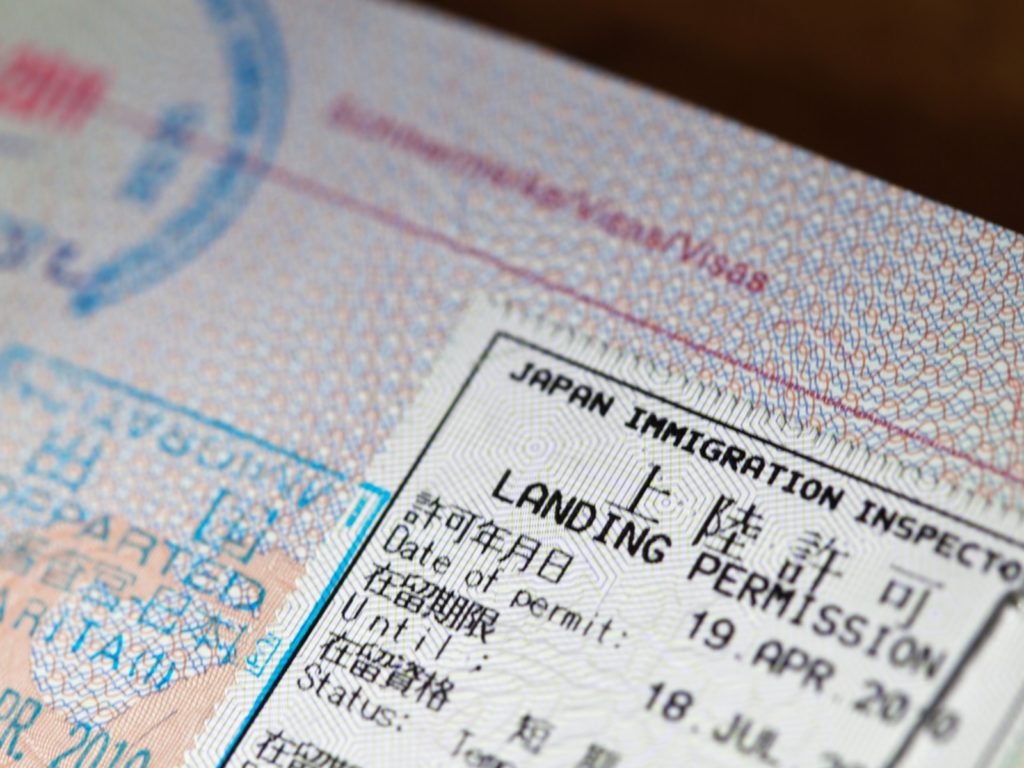In May this year, Prime Minister Abe announced the creation of a new visa type, provisionally named the “Specified Skills” (tokutei ginou, 特定技能) visa from April 2019. The policy shift signalled a move to open Japan’s doors to the much-needed additional foreign labour that would help plug the gaps in sectors feeling a particular strain.
In the original announcement, the government proposed to allow more than 500,000 foreign workers to be employed by five industries by 2025. These industries were agriculture, nursing care, construction, ship building and lodging and hospitality. In a significant departure from current laws, the visa requirements would not include a degree and would allow holders the chance to upgrade to permanent residency in Japan.
Since then, it has been drafting the details and a recent update shows that there will in fact be two new visa statuses: Specified Skills 1 and Specified Skills 2, that will potentially apply to 14 industries in total. The industries that will qualify are to be jointly decided by the Ministry of Justice and the ministry responsible for the industry itself.
Let’s take a look at these two new visas in greater detail, and examine what they might mean.
Are there any restrictions on who can apply for the visa?
So far, the government has only specified two restrictions. As with most visas, those convicted of criminal offences in their home countries are unlikely to be accepted.
Second, residents of countries with whom Japan does not have an agreement on repatriation after deportation, Iran being the most prominent example, are also unable to apply.
Based on past precedent, it is likely that further criteria, such as age restrictions, may be added at a later date before the scheme opens to applicants — currently set for April 2019.
Who needs workers?
There are 14 different industries which the government have identified as being in need of foreign labour support. So anyone with skills and experience in the following sectors is encouraged to apply:
1) Agriculture
2) Aviation
3) Cleaning buildings
4) Construction
5) Electronics and electrical equipment
6) Fishing
7) Food and banqueting (restaurants)
8) Food and drink manufacturing
9) Hospitality (hotels, etc)
10) Industrial machinery
11) Materials industry
12) Nursing
14) Shipbuilding
14) Vehicular maintenance
Who qualifies for the new visa?
There are 2 new visa types being introduced: Specified Skills 1 and Specified Skills 2. Of the two, Specified Skills 1 is the more immediately accessible. Let’s look at this in more detail.
Specified Skills 1
Unlike other visas for foreigners in Japan, such as Specialist in Humanities or Instructor, which typically require a university degree or a decade or so of practical experience if you don’t have a degree, the manual nature of the work involved for this new visa means that the bar to entry is different.
There are certain requisites that will need to be met. Firstly, you will need to have some Japanese ability. It is thought that Japanese Language Proficiency Test level N4 is the minimum standard, though this may be higher depending on which industry you enter. It stands to reason that a customer- facing role will require a higher command of the local language than factory work would.
Secondly, you will be required to have a degree of skill in the industry you have applied for. Though the government hasn’t been too specific on this so far, based on past cases, this means either a locally recognized certification in the area of work, or at least a year or two of experience.
If you are currently in Japan on the Technical Intern Training visa, then it may also be possible to upgrade to the Specified Skills 1 visa when your internship is complete, should you wish to remain in Japan.
There are, however, some additional caveats.
Specified Skills 1 visa holders are only allowed to remain in the country for a maximum of 5 years, and they are not, in principle, allowed to bring their family with them.
If you wish to stay in Japan longer, or to bring your family to live with you, then, in time, you will need to upgrade to a Specified Skills 2 visa. This can be done if you can prove that you have achieved a higher level of specialism in your area of work during your time in Japan. For example, if you attained additional certification or gained a promotion within your company.
Specified Skills 2
This second visa type is a step up from Specified Skills 1 and recognizes those workers who are more highly qualified or better experienced in their field of work.
If you qualify for a Specified Skills 2 visa, then there are some additional benefits to be had.
Firstly, provided you continue working, obeying the law and paying your taxes, the visa can be renewed indefinitely, there is no limit on how long you can stay in Japan and like most other visa types, you could, in principle, apply for permanent residency after 10 years of continuous residence.
However, as this new status doesn’t exist yet, there is currently no data available to determine the likelihood of your application for permanent residence being approved.
How do you level up?
As of yet, the requisite criteria for upgrading from Specified Skills 1 to Specified Skills 2 has not been confirmed. The government plans to allow individual sectors some leeway in this regard, with the ministries overseeing each sector being responsible for setting the criteria in each job and creating forms of assessment to test if workers make the grade.
What safeguards are in place to prevent either employers or employees from abusing the scheme?
Of course, there are many who view this plan with a degree of skepticism. There have been numerous reports up until recently of human rights abuses and fraud from employers in Japan under the Technical Intern Training scheme, a program through which workers in lower-skilled jobs could come to Japan, and which the Specified Skills visa is supposed to replace. According to the Asahi Shimbun, the program was accused of being a way for companies to engage cheap foreign labor and has resulted in many “interns” going AWOL in the middle of their contract. In the first half of 2018, 4,279 interns had already run away from their sponsor companies.
Although the exact details have still to be confirmed, the government has set out some of the steps it plans to take to prevent abuse of the system.
A new public body, the Immigration and Residence Agency, will be spun-off from the current Immigration Bureau, to oversee compliance. Among other things, this may include unannounced spot checks at companies suspected of non-compliance.
Additional safeguards include mandating that the foreign workers must receive the same pay as Japanese colleagues doing the same job, and any companies found to have been flouting the law previously under the Technical Intern Training program, will not be allowed to recruit new workers under the Specified Skills initiative.
Also, the use of middleman “agencies” to source staff overseas will be banned. Any recruitment for Specified Skills visa candidates must be done via direct hire.
However, Japanese language institutes in foreign countries will be permitted to provide support to companies in Japan looking for new staff, provided they don’t charge any sourcing fees to the applicant.
Has the government considered all the potential pitfalls?
There remain concerns over pension contributions and healthcare provision to workers signing up for this new visa.
As the law stands now, all full-time workers in Japan, foreign or domestic, are required to pay into the national pension scheme.
However, as things currently stand, a worker must pay into the system for at least 10 years before they are entitled to anything in return. If a worker opts to leave Japan permanently before reaching this total (as any Specified Skills 1 candidate who didn’t change their visa would have to after 5 years) then they are only entitled to a maximum rebate of 3 years, meaning workers who complete the 5 years would lose out.
There are currently 18 countries worldwide with whom Japan has reciprocal pension arrangements. Citizens of those countries would be unaffected.
Healthcare is also an area of concern. Considering the relative low cost of healthcare in Japan compared to countries such as the US, there is a worry that allowing workers to bring their families over under Specified Skills 2 visa conditions, would encourage “health tourism.”
However, the government has been quick to stress that they would “heavily restrict” who is eligible for healthcare coverage under the new scheme and will not permit access to healthcare for family members who are not ordinarily resident in Japan. However they have, as of yet, not specified how they would monitor this.
Whether or not the government’s initial target of bringing in an additional 500,000 workers is realistic remains to be seen, and the types of work offered could change as the economy evolves and the needs of each sector change.
To use journalistic parlance, this is a developing story and one that probably still has a few twists and turns left to take.
One thing is for sure, if you’re a foreigner who dreams of working in Japan, that dream just got a little closer.






This site is protected by reCAPTCHA - Privacy Policy - Terms of Service